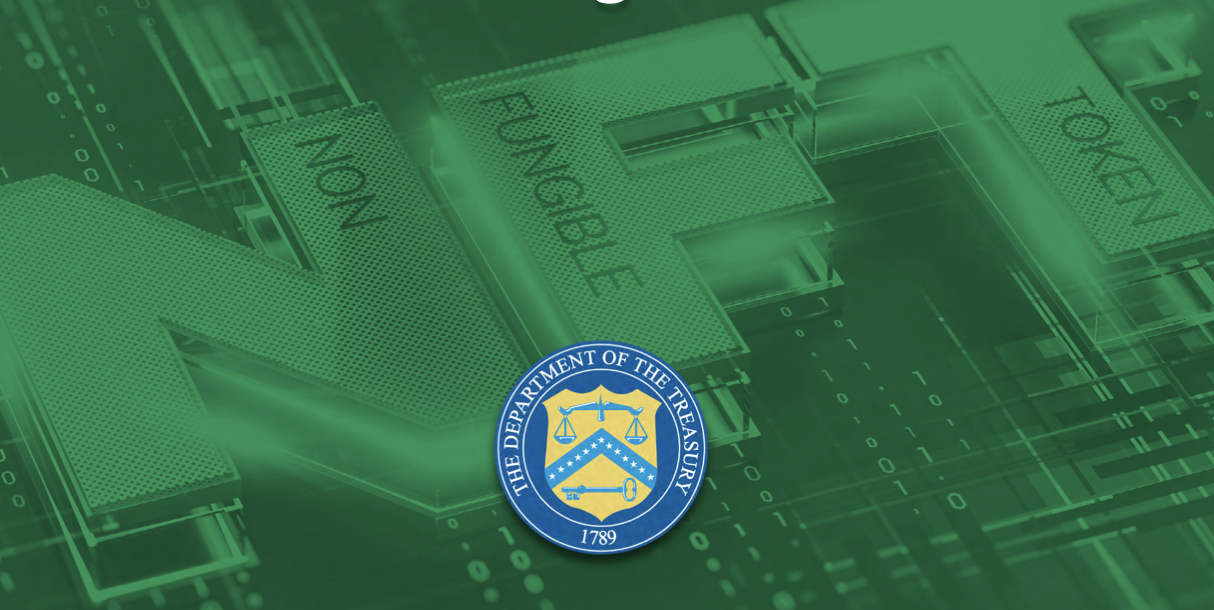
Treasury Department Releases Groundbreaking NFT Illicit Finance Risk Assessment
The U.S. Department of the Treasury has released its first Non-fungible Token (NFT) Illicit Finance Risk Assessment, highlighting significant vulnerabilities within the NFT ecosystem. This comprehensive report, part of the 2022 Digital Asset Action Plan, underscores how NFT platforms and the tokens themselves can be exploited for money laundering, fraud, and other financial crimes.
Key Findings
The assessment identifies that NFTs are highly prone to being used for illicit activities, particularly fraud and money laundering. Despite this, there is little evidence to suggest that NFTs are currently being used for terrorist financing or proliferation financing. However, the fluctuating pricing and high value of NFTs, coupled with inadequate cybersecurity measures, create a fertile ground for criminal activities.
Vulnerabilities and Risks
The report details several specific vulnerabilities within the NFT market:
- Fraud and Scams: NFTs are susceptible to various forms of fraud, including “rug pulls” (where creators abruptly abandon projects and disappear with investors’ funds) and counterfeit sales. These scams often leverage the hype and rapidly changing prices of NFTs.
- Money Laundering: Illicit actors can use NFTs to launder proceeds from crimes by quickly selling or trading the tokens to obfuscate the origin of the funds. The anonymity offered by some NFT platforms further complicates the tracing of illicit transactions.
- Theft and Cybersecurity Issues: Inadequate cybersecurity protections on many NFT platforms make them vulnerable to theft. Stolen NFTs are often quickly sold or traded, complicating efforts to recover them.
- Intellectual Property Violations: There are significant challenges related to copyright and trademark protections. Criminals can misrepresent the rights associated with an NFT, inflating its price and defrauding buyers.
- Market Integrity: Some NFT platforms lack appropriate controls to prevent money laundering and ensure market integrity. This absence of robust internal controls can lead to widespread exploitation by bad actors.
Recommendations for Mitigation
To address these issues, the Treasury’s report outlines several recommendations for both the U.S. government and the private sector:
- Regulatory Clarifications and Enforcement: Authorities should consider the application of existing regulations to NFTs and provide guidance to clarify these obligations. This includes continuing to enforce current laws related to money laundering and sanctions evasion.
- Private Sector Engagement: Continuous engagement with the private sector is essential to stay abreast of developments in the NFT space. This includes encouraging NFT platforms to adopt better security measures and comply with existing regulations.
- Consumer Education: There is a need for educational initiatives to help consumers understand the rights and risks associated with NFTs. Clear information can help prevent scams and reduce consumer confusion.
- International Cooperation: The U.S. government should collaborate with international partners to encourage global standards and policies addressing the illicit finance risks associated with NFTs.
- Technological Solutions: Development and implementation of technological solutions to detect and prevent fraud and money laundering in the NFT market should be encouraged. This includes tools for better blockchain analysis and enhanced cybersecurity measures.
The Treasury’s NFT Illicit Finance Risk Assessment marks a significant step in understanding and mitigating the risks associated with the burgeoning NFT market. While NFTs represent a novel and potentially valuable asset class, their misuse for illicit purposes poses substantial risks that must be addressed through comprehensive regulatory measures, industry cooperation, and consumer education. By implementing the recommendations outlined in the report, the Treasury aims to foster a safer and more transparent NFT ecosystem, safeguarding both investors and the broader financial system from exploitation.





